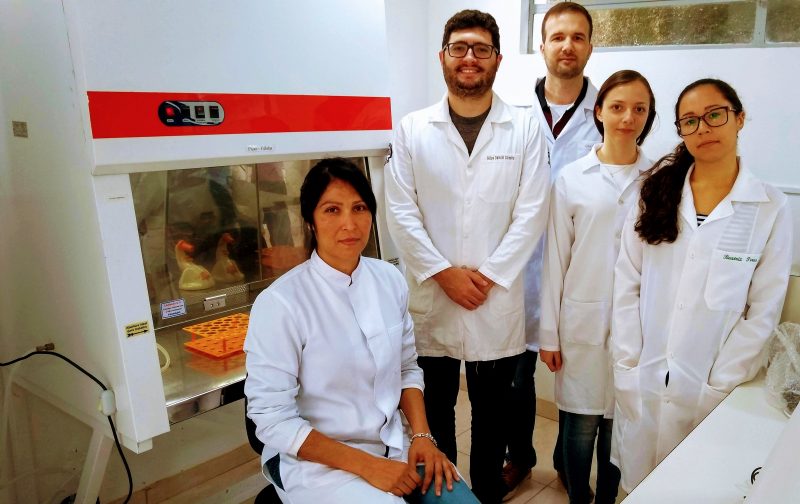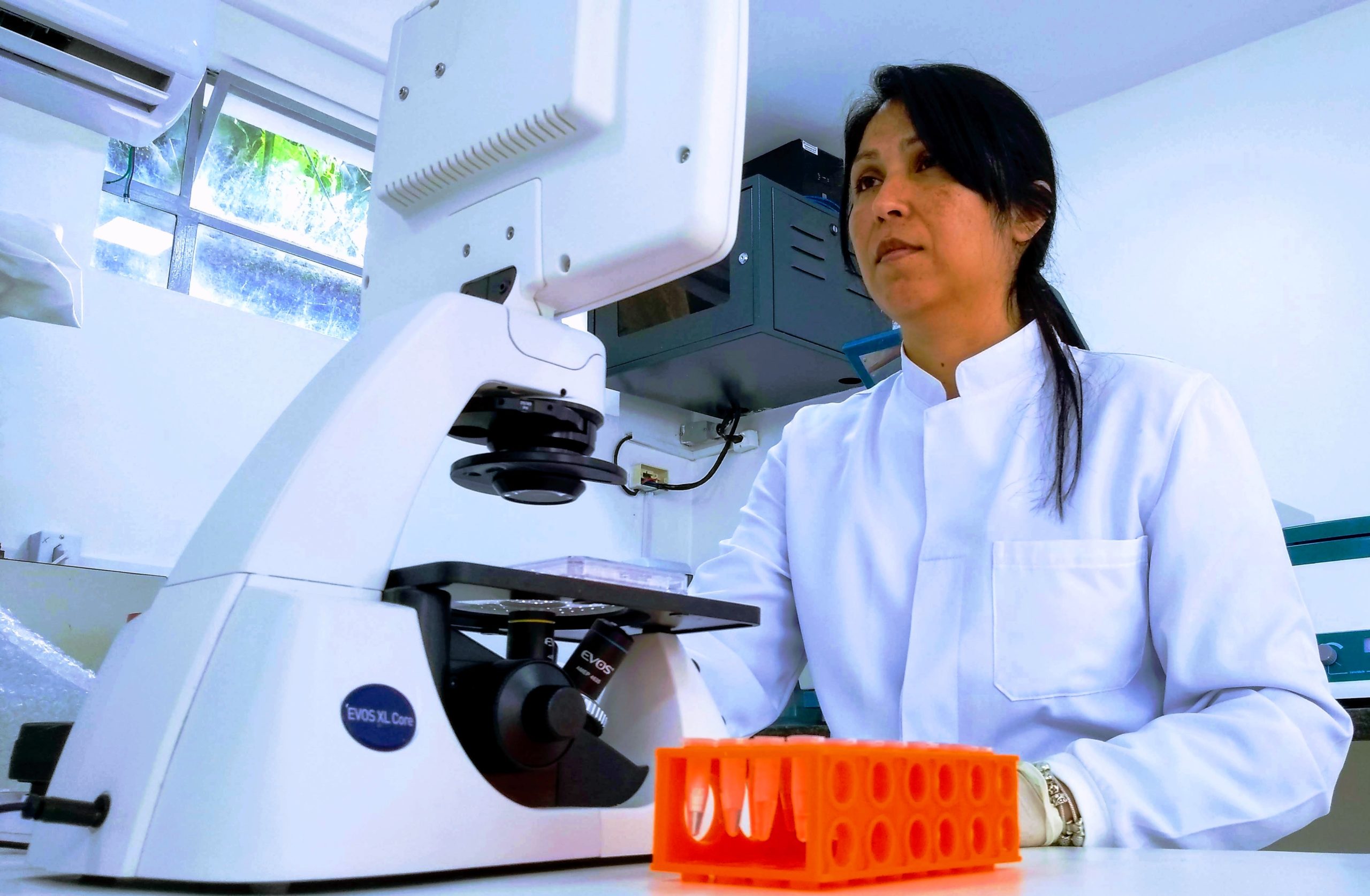Research that studies possible links between pesticides used in Brazil and the development of obesity and other related diseases, such as diabetes, is being carried out at the Nova Friburgo Health Institute (ISNF on its Portuguese acronym). The coordinator of the Multi-User Laboratory for the Cultivation of Animal Cells and Tissues of the Nova Friburgo campus, Professor Flora Milton, and the coordinator of the undergraduate course in Biomedicine at ISNF, Professor Leonardo Mendonça, are the study’s supervisors.
The investigation aims to assess whether the pesticides used in Brazil have obesogenic potential, that is, whether they can induce the accumulation of fats in the body. The researchers selected 10 pesticides that have their use registered in the country, of varying chemical classes for greater coverage and accuracy in the results. The study was divided into two stages. The first, coordinated by Professor Flora, is being carried out now, and it is about the applications of the product and evaluations in cell cultures. The second stage, led by Professor Leonardo, concerns the tests on mice. However, due to ethical concerns, the team opted to decrease the use of animals in the research and considered the need to first understand the functioning of the entire molecular mechanism of what they have been investigating, only then to make a more global assessment through animals.
Brazil is the world’s largest consumer of pesticides since 2008. Glyphosate, the most widely used herbicide in the country, is highly known for its controversy. Listed countless times as a carcinogen, the substance is widely advocated by ruralists and pro-pesticide specialists. In addition to this herbicide, many other substances used in Brazil as pesticides are prohibited in Europe and the USA, such as the fungicide Tiram, which was withdrawn from the United States market due to its association with genetic mutations and endocrine and reproductive problems, and the herbicide Lactofen, banned in the European Union since 2007. Flora exposes the role of research of this kind for our country, “The fact that Brazil is the largest consumer of pesticides in the world was fundamental in our choice for research. We need to study and show our results, to be taken into account even in the regulation of new products. In order to be able to argue through studies and evidence that these products are bad for health.”
 One of the rules used in choosing these pesticides for research was their official application in national production. “One of the criteria used was the registration in Brazil of these products, we need to use the substances in pure form, without fixatives. So, we bought from a company that proves this purity, to make sure that it is the pesticide itself that causes the effect we are verifying. We also have chosen pesticides of different chemical classes that are used in a greater number of species and cultivars. That way, we choose pesticides that are more relevant and that we, as citizens, can be exposed to,” explains the professor.
One of the rules used in choosing these pesticides for research was their official application in national production. “One of the criteria used was the registration in Brazil of these products, we need to use the substances in pure form, without fixatives. So, we bought from a company that proves this purity, to make sure that it is the pesticide itself that causes the effect we are verifying. We also have chosen pesticides of different chemical classes that are used in a greater number of species and cultivars. That way, we choose pesticides that are more relevant and that we, as citizens, can be exposed to,” explains the professor.
Obesity is a multifactorial disease. Endocrine disrupters – substances present in the environment that can interfere with endocrine metabolism – for example, play an important role in the development of the disease, as Professor Flora Milton points out. “These endocrine disruptors are factors considered to contribute to the development of obesity, both by the World Health Organization (WHO) and by the Brazilian Association for the Study of Obesity and Metabolic Syndrome (ABESO). There is evidence that these deregulators contribute to external factors in the development of obesity and diabetes. And what we are investigating is whether pesticides can act on these mechanisms. We found the indication that yes, we have a result that the pesticide is inducing lipid accumulation in cells, our next step is to evaluate this in animals,” she explains.
Professor of Bioengineering at the University of California and creator of the term obesogenic, Dr. Bruce Blumberg, is a collaborator on the research project. When he was at the Universidade de Brasilia for the 1st Pharmacology Symposium of the Federal District, which took place on the 12th and 13th of November 2018, he had access to the results of the research developed by UFF professors and considered them of extreme relevance. Professor Blumberg studies endocrine disrupters and their effects, DNA damage, and whether it is inherited. “What we are unable to do here, we are looking for in this collaboration with the American scientist. The partnership is paying off for us,” says Flora Milton.
The research is also a partnership between UFF and the Universidade de Brasília (UnB). UnB is a financial contributor to the study, as well as a supplier of materials and space for carrying out specific tests, such as real-time PCR. This test, which allows the visualization of DNA and the identification of the presence of pathogens in the sample, is used to evaluate the expression of genes related to adipogenesis, obesity, and insulin resistance in both cells and animals.
Flora concludes by presenting the temporal objectives of the study. “In the short term, we hope to identify the adipogenic potential of pesticides through study in cell culture. In the medium term, we will assess whether the potential observed in cells can also be observed in mice. Animals represent more complex organisms, whereas other factors are certain to interact with pesticides. And in the long term, we hope to establish a relationship between what was observed in the laboratory and human beings.”




